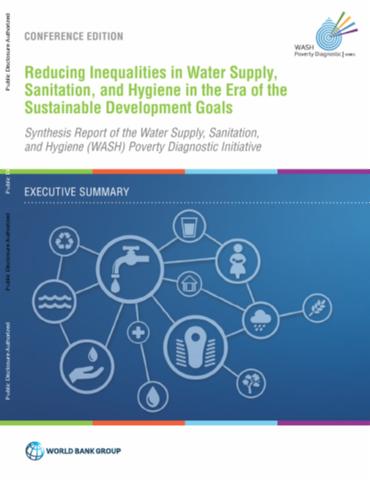Reducing inequalities in water supply, sanitation, and hygiene in the era of the Sustainable Development Goals: executive summary
The Sustainable Development Goals (SDGs) and the World Bank’s corporate goals of ending extreme poverty and boosting shared prosperity call for specific attention to the poor and vulnerable. The overarching objective of the SDGs is to end poverty in all its forms, but their key difference from the earlier Millennium Development Goals (MDGs) is the integration of social, economic, and environmental goals. This has significant implications for reforms aimed at improving service delivery. With this understanding as its guiding compass, the Water Supply, Sanitation, and Hygiene (WASH) Poverty Diagnostic Initiative focuses on what it would take to reduce existing inequalities in WASH services worldwide. This report, a synthesis of that global initiative, offers new insights on how data can be used to inform allocation decisions to reduce inequalities and prioritize investment in WASH to boost human capital. It also offers a fresh perspective on service delivery that considers how institutional arrangements affect the incentives of a range of actors.


